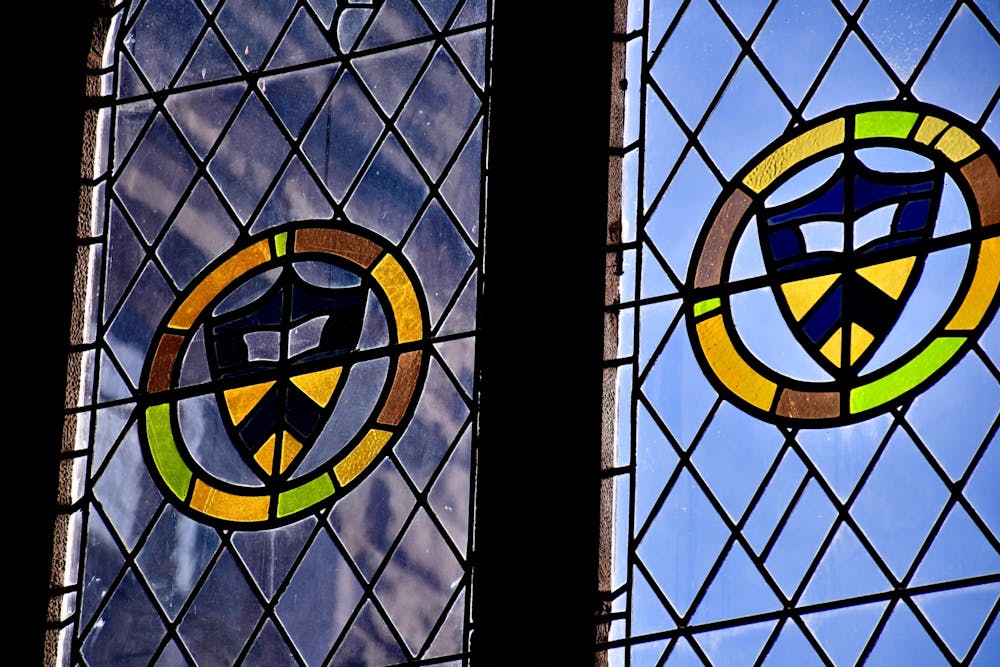Editor’s Note: This piece ran in The Daily Princetonian’s Oct. 2020 print issue.
In recent weeks, Princeton has commanded national attention, both to its profit and detriment. In the same month that Mellody Hobson ’91 gave the funds to create a new residential college, the first to bear a Black woman’s name, high-profile clashes with the federal government have embroiled Nassau Hall.
In September, the Department of Education announced it was investigating whether Princeton had discriminated on the basis of race, after President Christopher Eisgruber ’83 acknowledged that racist assumptions “remain embedded in structures of the University itself.”
Less than two weeks later, the Department of Homeland Security proposed setting fixed term limits on student visas — a restriction that would compel many international students to leave the United States after four years. The average Princeton Ph.D requires nearly six.
This month, Nassau Hall reached a $1.175 million settlement with the Department of Labor, which found that between 2012 and 2014, the University paid 106 female full professors “statistically significant” lower salaries than their male counterparts. The investigation began under the Obama administration.
Campus may be deserted, but it looms large in political debates and cultural flashpoints. As students who attend an institution trapped in the nation’s crosshairs, how are we to respond?
Just as last month’s issue explored how to make Princeton meaningful from afar, I hope this month’s edition will offer a few answers.
First, we must treat one another with empathy and understanding, instead of the cynical self-interest that defines our political moment. In a column printed here, Brittani Telfair argues that the coronavirus pandemic has revealed American political culture to be bankrupt. “In the United States,” she writes, “empathy has become a partisan value, when in fact it should be a human one.” Rather than “memorialize, celebrate, and respect” those who have perished, we forget the virus’s victims for political gain.
Telfair offers a new way forward. “Profit and convenience,” she writes, “should never take precedence over people, and people should never be so broadly accepted as mass-produced and disposable.” At one of the most world’s most powerful universities, Telfair’s lesson is vital to remember.
Second, we must turn to our own community with a caring and critical perspective. In investigating the University, the Education Department has done little to disguise its political motivations. But that fact doesn’t exempt the Orange Bubble from scrutiny, as we seek to make our community more equitable and just.
Elsewhere in this issue, Collin Riggins writes that anti-racism requires “hearing BIPOC voices speak their truth,” rather than repeating the platitudes of white liberalism. Hannah Reynolds calls attention to the University’s failure to confront anti-Native racism, while Julia Chaffers argues that many colleges have exploited athletes in their rush to resume football.
In Features, you’ll learn that 2020 is not the first time student and nationwide anti-racist activism has yielded an institutional response. In 2015, protests by the Black Justice League precipitated over three years of committees, recommendations, and reports. You’ll hear from students and administrators who sat on two such groups.

Last spring, Hobson told the ‘Prince’ that she and John Rogers ’80, who serve as co-CEOs of Ariel Investments, the country’s first asset management firm owned by people of color, have pushed the University to foster and sustain diversity, because they hope to serve their alma mater.
“Our perspective on this grows out of a love of Princeton,” she said. “John and I are indebted to our university. We have been, you know, Princeton fanatics for our whole lives. We only wanted to continue to see it thrive in every way for generations to come.”
As we anticipate a campus that includes Hobson College, those are words to guide us.
Jonathan Ort is editor-in-chief of The Daily Princetonian. He can be reached at eic@dailyprincetonian.com and on Twitter at @ort_jon.








